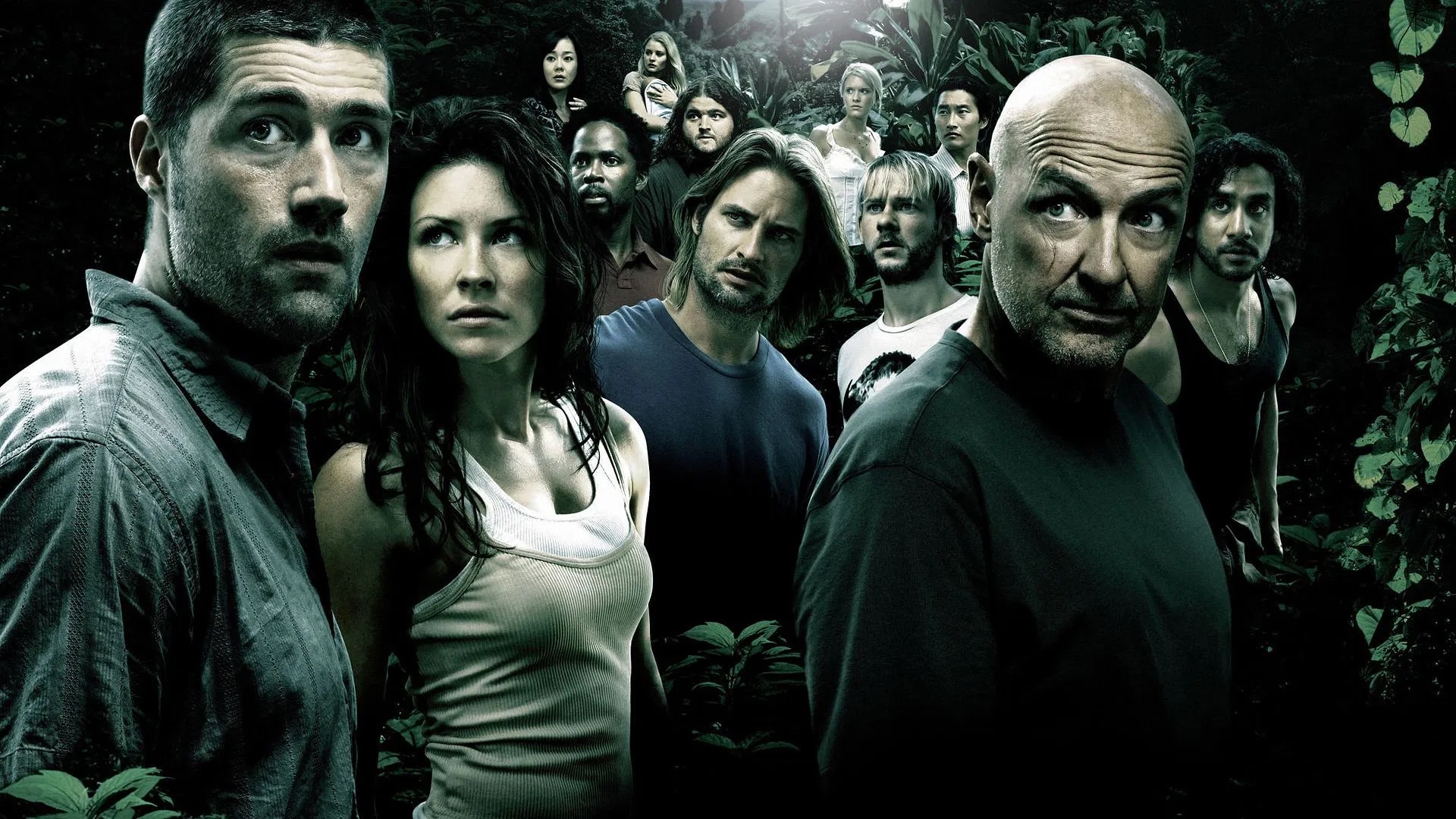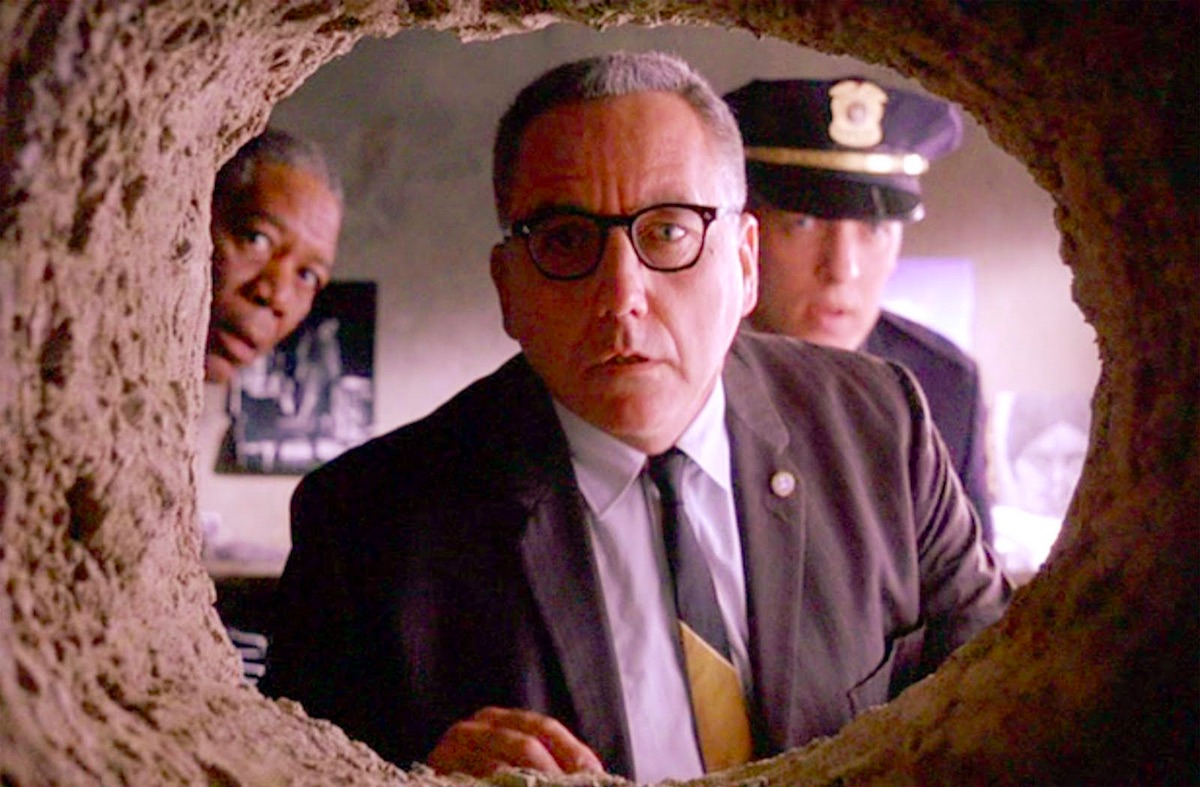Remember Lost?
When it debuted in 2004, no one could have predicted that Lost would go on to become one of the most-watched, most-discussed, and most influential TV series of all time. But there’s one specific way Lost influenced all the pop culture that followed it which has become incredibly unfortunate:
Lost has us all trapped in a Mystery Box culture.
If you’ve never heard the term before, the Mystery Box is the term that Lost co-creator J.J. Abrams uses to explain the structure of a good mystery story: you drop people into the middle of a mystery-in-progress that leaves them wanting to know answers in both directions.
In the case of Lost, those myseries were compelling questions like: Who are all these people? Where are they? Why are they there? (When are they there?) How did their plane crash? How will they survive? What unseen force is behind all of this? Who can we trust?
In the Abrams formula for storytelling, more mysteries = better stories, because every new answer creates more new questions. This means the audience will keep coming back to scratch their intellectual itch, and spread the word about the mysteries in the process.
To be fair, in the case of Lost and other stories that have used this model — including Game of Thrones, Westworld, and nearly every Christopher Nolan film — he’s mostly right. Audiences do love mysteries, and they enjoy trying to piece hidden clues together in order to see if they can figure out the ending before everyone else does.
But: a mystery is not necessarily a story.
In theory, there’s nothing wrong with using the Mystery Box as a storytelling tool.
The problem is the way it’s been used, and the troubling effect it’s had on audiences.
Let’s take a look at the impact of the Mystery Box on pop culture, and then consider one tweak to the formula that could fix nearly everything that’s wrong with it.
How to Write a Mystery Box Story… or Not

First, let’s talk about the elephant in the room:
We rarely see stories in which the Mystery Box is used properly from beginning to end.
Lost, the most famous example of Mystery Box storytelling, didn’t actually have a clear ending in place from the beginning. The show’s primary writers, Damon Lindelof and Carlton Cuse, have admitted in interviews that they while they had many of the show’s major plot points figured out in advance, they never intended to solve every question the show presented. This means a lot of time was spent on story threads and details that didn’t add up in a way that was logically or emotionally satisfying in the end, at least for many viewers.
This frustrating lack of a satisfying conclusion is a recurring feature of Mystery Box shows.
Game of Thrones infamously shifted from a logic-based narrative, in which people’s actions led to inevitable reactions and everyone was playing the same “game” by established rules, to a more subjective narrative once the source material ran out.
At that point, showrunners David Benioff and D. B. Weiss were forced to connect the dots between what author George R. R. Martin had laid out up to that point and the conclusion that he himself has still not been able to write his way to in the books. This shift in tone, and the conversion of the story from a meticulously-planned narrative to a series of obligatory plot points that needed to be included in order to reach the endgame, made most fans feel like the last two seasons of the series were vastly inferior to what had come before.
Westworld‘s storyline was rewritten when the showrunners realized some Redditors had figured out the plot twists in advance.
And Christopher Nolan’s films are almost always Mystery Box structures, in which a core feature of the story (Leonard’s memory loss in Memento, the magic in The Prestige, the books falling off the shelf in Interstellar) are revealed to be part of a mindblowing twist in the film’s climax. Even a film like Dunkirk, which could have been told in an entirely straightforward way, was instead cross-cut into three distinct but converging timelines. We can debate whether those cross-cut timelines enhance the emotional impact of the story, but it’s hard not to view Dunkirk‘s structure as a case of Nolan feeling obliged to not deliver a straightforward story when so much of his fanbase prides themselves on their ability to appreciate his Mystery Box affectations.
Speaking of Nolan’s fans, let’s talk about the other Mystery Box effect:
Mystery Box Stories Are Designed to Reward a Very Specific Type of Audience

At the show’s peak, there were dozens — maybe hundreds — of YouTube channels devoted to analyzing Game of Thrones, with videos that were routinely watched by millions of fans.
Why?
Because Mystery Box shows are an IQ test.
Did you spot all the clues? Did you solve all the puzzles? Did you find all the easter eggs?
If you did, then you are a good fan.
And if you didn’t, well, anyone who did is a better fan than you are.
This is not a healthy way to appreciate a piece of art, or a story, or pretty much any other aspect of culture. Yet TV shows and movies that are designed to reward their most obsessive viewers with a heightened appreciation for their own structure inevitably create a caste system of fandom, in which the “real fans” are the ones who spend countless hours analyzing the backgrounds of scenes for clues while “fake fans” (read: everyone else) just shows up to enjoy the show as a passive viewer.
And because we live in an attention-based economy, the amount of buzz that Mystery Box shows get has led other shows and movies to adopt this same format in the hope of generating similar buzz, despite that fact that they have no inherent reason to use that structure.
Did you catch all the easter eggs in the latest Marvel movie?
Did you notice that one line of dialogue in Better Caul Saul that’s actually foreshadowing a twist that will happen in season three of Breaking Bad?
Did you meticulously chart the multiple levels of the dream states in Inception to make sure you knew whether or not Cobb was really dreaming in the end?
If not, well… you must not be a real fan.
Can the Mystery Box Hold a Lightsaber?
 Let’s circle back to J.J. Abrams for a second.
Let’s circle back to J.J. Abrams for a second.
The creator of Alias (and Felicity!) and the co-creator of the Lost pilot has since become famous for rebooting two beloved sci-fi series, Star Trek and Star Wars.
And in both cases, his Mystery Box doesn’t exactly work.
Star Trek is the easier of the two to excuse, since neither of Abrams’s entries in that series — 2009’s Star Trek and 2013’s Star Trek Into Darkness — are particularly complex. Nonetheless, they both set up payoffs that don’t quite work, mostly because the “twist” (there are multiple Spocks! Benedict Cumberbatch is Khan!) doesn’t pay off information that’s inherent to the story as it’s told; instead, they pay off fan expectations based on pre-existing entries in the series.
In other words, it’s fan service as a surprise, despite the fact that the fan service was also the whole point. (Alas, you can’t have it both ways.)
But let’s talk about Star Wars.
In 2015, Star Wars: The Force Awakens rekindled the Star Wars franchise for a new generation. The story revolved around Rey (Daisy Ridley), Finn (John Boyega), Kylo Ren (Adam Driver), and a host of new characters interacting with fan favorites like Han Solo and General Leia Organa. In that case, fan service alone could have been more than enough to satisfy the fans after a 10-year hiatus.
But Abrams couldn’t stop himself from opening the Mystery Box, and we ended up with a trilogy that many viewers feel at best indifferent to, and at worst highly unfulfilled by.
How did this happen?
Three reasons:

First, Abrams centered the story on new mysteries (Who are Rey’s parents? Who is Snoke?) which he had no intention of answering. He wasn’t contracted to close out the trilogy; he was just creating mysteries in the first movie and leaving them for someone else to solve.
Second, when Rian Johnson joined the series as the writer-director of The Last Jedi, the second film in the trilogy, he answered those mysteries in a revolutionary way: he wrote them off as meaningless. This left a lot of Mystery Box fans, whose identities as “real fans” are tied to their ability to understand a story on the same level as its creators, feeling robbed of a payoff that they had spent a lot of time trying to discern.
Third, when Abrams and his co-writer Chris Terrio returned to close out the trilogy, they intentionally undid some of Johnson’s choices in The Last Jedi because… well, here’s Terrio in his interview with GQ:
Q: I wouldn’t be doing my job if I didn’t talk about the elephant in the room, which is the whole Rey’s parents thing. What were your initial thoughts going into resolving this mystery after it was seemingly cleared up in the prior movie?
A: Well, we weren’t convinced that it had been cleared up, because there’s still this highly troubling vision that Rey had in Episode VII, which is the shop with her parents leaving the planet. Also, the events of The Last Jedi are literally just after the events of Episode VII—within 48 hours, Rey has had a force-back to her parents and then the very next day is told “your parents were no one and they were junk traders. None of that matters.” And we thought in a way that would be too easy because of the idea that Rey had been longing for her parents for so many years. We just felt like there was something more going on.
In other words: Abrams and Terrio decided that what the fans really want from Star Wars is answers to mysteries.
Unfortunately, their answers (Rey is a Palpatine! Speaking of, Palpatine is still alive!) felt unearned and inorganic to the expectations many fans had for the conclusion of this trilogy.
Why?
Well, for an intellectual payoff to feel fulfilling, the seeds of that payoff need to be planted in a way that fans can actually find. But Rey being a Palpatine is an idea that Abrams and Terrio came up with on the fly, as Terrio explains in this Indiewire interview:
While Terrio was mum when asked if Palpatine’s return was already in place when he joined the project, he had plenty to offer about the deeper thinking that Abrams put into resurrecting the classic villain, especially as to how it would impact Rey.
“As J.J. said, that it would almost be weird for Palpatine not to be in some way in this movie,” Terrio said. “Because when we discover Rey, she’s literally living in the wreck of the old war, the previous war, that literally the landscape of Jakku is scarred with evidence of the war that came before. I think what we wanted to say in this is that, that war never really ended. Yes, there was the victory of the greatest generation, the revolutionary generation, and that was a real victory and balance was achieved for a time, but every generation has to fight for the balance again. We were moved by the idea that the person who should have to fight to regain the balance that Anakin Skywalker gained was the descendant of his greatest enemy who corrupted Anakin Skywalker in the first place.”
So no, the Palpatine reveal can’t truly be fulfilling because it wasn’t part of the original concept of the new trilogy.
But this also goes one step deeeper, back to the central problem with Mystery Box storytelling: even if a payoff is set up logically, it still only rewards one half of the audience’s ability to appreciate a story.
So, what’s the other half?
What part of the audience’s engagement isn’t being rewarded by the Mystery Box?
To answer this, let’s look back to the decade that preceded the rise of the Mystery Box:
What Movies from the 20th Century Got Right About Surprise Endings

Although the Mystery Box became extremely popular in the 21st Century, it was already picking up speed by the end of the 20th.
Many of the films that have topped the IMDb Top 250 include ’90s classics like The Shawshank Redemption, The Sixth Sense, Fight Club, The Usual Suspects, and Reservoir Dogs, each of which revolves around a surprising reveal in the film’s last act, as well as Pulp Fiction, whose nonchronological storyline doesn’t necessarily create a mystery but does create a dividing line between “people who get it” and people who don’t.
Because of this, it’s understandable that writers like Abrams and Terrio would be “mystery first” thinkers: the mysteries or twists in those films are the aspects that we’re still talking about 20+ years later, right?
Except… that’s not why we’re talking about them.
Going back to Terrio’s comment about the need to pay off Rey’s heritage, his comments throughout that interview indicate that he and Abrams believe viewers consume stories primarily for the surprises and reveals (which are primarily intellectual rewards), and not for the character interactions (which are primarily emotional rewards).
But solving an intellectual mystery doesn’t inherently lead to an emotional payoff.
The reason the biggest twists in film history work so well is not just because they reward sharp-eyed viewers for solving the puzzle correctly, or by dazzling the viewers who didn’t figure it out in the first place, but because those logical twists are intrinsically tied to emotional payoffs for characters we care about.
The Shawshank Redemption works because the big twist is tied to hope, which is the film’s central theme.
The Sixth Sense works because the big twist is tied to closure, the absence of which has been hanging over the film since the opening scene.
Fight Club works because the big twist forces us to re-evaluate everything we just saw while implicating us in our desire for the lie to be true.
The Usual Suspects and Reservoir Dogs work because we come to appreciate these criminals as people, which makes their no-win choices that much more crushing in the end.
Even The Godfather and Citizen Kane, two more traditional films that routinely top best-of lists, contain surprises or reveals in their final moments that punch us in the gut while they reward our intellect.
When Michael Corleone consolidates power during the baptism sequence in The Godfather, it’s thrilling and heartbreaking at the same time, because it inverts the underdog story we thought we’d been watching: Michael rises to the top by sacrificing the humanity that had set him apart from his family until now. And when the meaning of Charles Foster Kane’s last words are revealed, it recontextualizes everything we’ve known him to be, which turns him from a callous monster into a tragic figure.
But the twists and reveals in The Rise of Skywalker? Lost? Game of Thrones Season 8?
None of them pay off in a way that validates their setup, which makes them feel both intellectually and emotionally dishonest.
So, What’s the Solution?

For all the buildup, the way to fix the Mystery Box problem is surprisingly simple:
Instead of trying to make stories that depend entirely on keeping the audience guessing until the very last moment, make stories that deliver an emotionally resonant conclusion. A logical plot twist can be part of that solution, but it’s an option, not a necessity.
(Also, for a great example of how to create a powerful emotional arc, look at what Quentin Tarantino did with Pulp Fiction.)
The real key to delivering a payoff that audiences will appreciate is to create characters with clear desires. That way, the audience understands not just what a plot twist means, but why it matters to the goals and the well-being of the characters we’ve come to care about.
By all means, include twists and surprises in your stories. Dice up your narrative. Wield the Mystery Box like a pro.
Just make sure the solutions to your mysteries connect with your audience both intellectually and emotionally.
Those are the stories we’ll keep talking about for generations — not just because of how the twist surprised us, but because of how those surprises make us feel.
More Posts Like This:


6 Comments
Brian · February 8, 2023 at 7:49 pm
Gave up on Lost two episodes in, because I realised by that stage that Abrams and co hadn’t bothered to think their own series much further on. Never had much respect for him as a film or tv creator after that.
Brandon · January 12, 2022 at 9:09 pm
It sounds like you’re just whining. You’ve got a lot of pretty good (albeit obvious) points; like, make better movies. But everything you say about people who enjoy mystery box films suggests you feel excluded. YOU are the one drawing a line in the sand. YOU are the one saying it’s us vs them. YOU are the one distinguishing “true fans” from “everyone else.” I’m sorry, but it sounds like bullshit to me. Sometimes people want to be more than passive viewers. Sometimes they want to be active participants in the film or show they’re invested in. That participation comes in the form of the mystery box genre. It’s not about an “IQ test,” or proving who the better fan is; it’s about participating in the experience of storytelling. Just because people enjoy that process doesn’t mean they see themselves as somehow “better” than everyone else. And yes, there is a caste system that develops, and there is competition, and there is a sense of being rewarded; because that’s how games work. If you don’t like it, don’t play. But don’t sit there and try to convince me the problem is inherent in the genre. There’s nothing wrong with competition or a sense of reward for watching a good story unfold – especially when the viewer feels like they’ve helped piece the story together along the way. Too many writers and directors are taking advantage of their viewers’ expectations, and as a result many mystery box shows are shit. Even Lost was bloody terrible when you get right down to it. But that doesn’t mean the genre is messed up, and it doesn’t mean viewers who enjoy those media are somehow superior. Your comments sound like they came from someone who’s been on the sidelines their whole life and never got a chance to play. But the game isn’t broken, friend. People who enjoy intellectually stimulating media and being an active participant in that media shouldn’t be shoehorned just because you feel left out. That’s the nature of games. Some play, some don’t. There are winners, and there are losers. Competition breeds reward. Some people like a dash of solvable riddles in their media, not because it makes them feel intellectually superior, but just because it’s fun.
I agree with your overall point, but many of your comments seemed to come from a place of resentment towards people who really enjoy this genre. Perhaps you should examine why you feel inferior in the first place, instead of blaming the media for encouraging this competitive reward system. Personally, I think most people just like to play games, and they like to feel like active participants in the show or movie they’re watching, and that’s why mystery box has become so popular. There’s not much else to it.
Ryan · July 30, 2023 at 6:46 am
Why do you shout “You” a bunch of times?
Also, I don’t think this is meant as an attack on the one type of viewer. I do think that the two type of viewer framework is flawed. I think almost all viewers are interested both in mysteries and in an emotionally satisfying conclusion. That is why many Lost fans (people who were by definition fans of mystery boxes) didn’t like or were unenthusiastic about the ending. Really Justin’s article is about surprise endings, and why some are more popular than others.
Felipe · February 18, 2021 at 12:04 am
Good point of view!
I think the problem with Mistery Boxes is that their explanation is not thought from the begining. The problem is that JJ puts them and thinks “Yeah, maybe I’ll figure it out the meaning someday”. Some of these misteries are never solved because he cannot think how to solve them.
Which makes a LOT of plot holes, because the “solution” would break the story in the middle.
Good plots are thought from the end to the begin, then the misteries are sprinkled all over the place, but they have a reason to be there. Like Chekov’s gun.
If there is a mistery and it’s never solved, forgotten and adds a plot hole, the whole quality of the movie/series falls.
Ar · January 25, 2021 at 11:45 pm
Attentive viewers SHOULD be rewarded. Fuck off with that passive audience bullshit.
Attack on Titan is Kind of Trash | I Choose to Stand · June 13, 2021 at 12:30 pm
[…] final third of Attack on Titan is a good example of the dangers of the mystery box style of storytelling. Attack on Titan absolutely thrives on mystery boxes. What are the titans? What is outside the […]